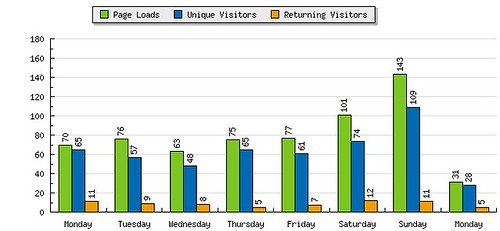What do Opal Fruits, Marathon and the singer Prince all have in common? It’s probably very obvious for those with a sweet tooth, but all of them have undergone a name change. Opal Fruits became Starburst in 1998, Marathon became Snickers in 1990, and Prince became a wee squiggle in 1993 (‘The Artist Formerly Known As Prince’).
Now, these name changes may not be vitally important to us - unless you hadn’t had Opal Fruits for years and decided you wanted some and then couldn’t find them on the shelf... However, our passage tonight presents us with a much more important name change. It’s not being done by a marketing firm, or by the PR gurus. Instead, God is the one who changes Jacob’s name from Jacob to Israel.
Just as when Saul got a new name when he was converted, becoming Paul, or Simon being given the name Peter by the Lord Jesus, the name change is an illustration of what God has been doing in Jacob’s life over many years. He goes from being ‘he deceives’ (living by his wits, out for himself), to being ‘he strives with God’ (knowing God’s blessing through relationship with him).
Yet even in tonight’s passage, we see the measure of the man God is working with - and as we consider Jacob, we can marvel at God’s faithfulness and the abundance of his grace working in his life.
As we saw last week, Jacob is on the move. It’s been a long time coming. Twenty long years with Laban, but now he’s coming home. God has told Jacob to return to his father’s house, and so he sets off. Yet he knows that he’s going to have to meet Esau. With no emails, no video-conferencing, no Christmas cards, Jacob doesn’t know how Esau is going to react when he returns back home. It’s twenty years since the brothers have seen each other. Since Jacob took Esau’s blessing and fled, with the threats of Esau ringing in his ears. And now he’s coming home.
He sends some messengers ahead to bring greetings to Esau, telling him about his prosperity and seeking peace - ‘that I may find favour in your sight.’ (5) The messengers return, to say that Esau is coming to meet him, and bringing 400 men with him. A small army. Will Esau follow through on the long ago threats?
Straight away, Jacob responds as we’ve seen him before. His devious scheming is in evidence as he responds in fear, by dividing his property into two camps. This is so that (as we’re told his thinking) if one camp is attacked, at least the other can escape so that he doesn’t lose everything.
In his fear, Jacob also prays - a wonderful prayer in which he identifies God as the one who has promised so much good, the one who has shown grace to a man so unworthy to prosper him, the one who can deliver him from his brother. It’s a great prayer, and can serve as a model for the prayers that we should be praying as well - adoration, confession, request, and appeal to God’s word/promises.
He has asked God for deliverance, and yet Jacob is still Jacob, the deceiver, the one who has to sort out his own problems. You sometimes get people like that, don’t you - they pray to God, but then take matters into their own hands, if God isn’t responding to their prayer as quickly as they think he should. Or they pray, but then make up their own mind and do what they were going to do anyway. Or they pray and then carry on regardless in their own scheming.
It’s Jacob, once again. He has prayed for deliverance, but then takes matters into his own hands and prepares a procession of presents bound for his brother. Now, on the face of it, this could be a nice gesture - see how God has blessed me and enabling others to share in that blessing. It could even be a testimony to God’s goodness. Yet we’re also given Jacob’s thoughts - we have a window into his intentions and motives. In a slightly different context, God told Samuel that man looks on the outward appearance but the LORD looks on the heart (1 Samuel 16:3) - God searches the heart and sees our motives.
Look at verse 20. ‘For he thought, “I may appease him with the present that goes ahead of me, and afterward I shall see his face. Perhaps he will accept me.”’
He’s trying to buy off his brother’s favour and acceptance through all these gifts. He’s undermining the prayer he prayed by trying to achieve deliverance by his own hand and effort, rather than through quiet trust of the Lord. It turns out (as we see in the next chapter) that the deceiver is deceiving his own heart - Esau doesn’t want his gifts. He’s pleased to see Jacob again after all this time. Yet isn’t that how we imagine we can buy God off - give him presents and gifts and good deeds and whatever else and then expect acceptance from God. So we trot out our giving to charity, or our work for the Sunday School, or how nice we’ve been to our next door neighbour, and think that God will be appeased through these things. Yet it’s God who has done all that is necessary for us to be accepted - not through appeasement, but through the costly propitiation and satisfaction of his wrath in the cross of the Lord Jesus.
Jacob is still Jacob - he deceives even after all this time; as he looks to his own security in dividing the camps; as he seeks to appease his brother through gifts; and as he undermines his prayerful trust by his own scheming. But as the sun goes down, Jacob has sent his wives and children across the river. He’s alone, and this will be an extraordinary night.
By the end of it, he will have a limp, a new name, and the further promise of blessing. He’s alone, and yet he isn’t. Look at verse 24. A man is wrestling with him, struggling with all his might, and Jacob is struggling back. When we’re thinking about wrestling here, though, perhaps it might be useful to point out to the younger ones that you’re better to think of Olympic Games style wrestling rather than the WWF/WWE/WCW type pantomime wrestling shown on Sky TV. It’s not all bouncing off the ropes and the steel chair and extravagant costumes. It’s a firm grip of your opponent seeking to bring them to the ground.
We’re not told directly who the man is, and yet we are - following the whole night of struggling, the man dislocates Jacob’s hip. Even despite the pain he’s in, Jacob holds on to that remarkable statement in verse 26: ‘I will not let you go unless you bless me.’ The words of the blessing, as Jacob’s name is changed reveal precisely who he has been wrestling with: ‘Your name shall no longer be called Jacob, but Israel, for you have striven with God and with men, and have prevailed.’
Jacob, the deceiver, has encountered God, striven with him, and has prevailed, obtaining the blessing from God. No need of schemes and trickery, no sense of using God to get what he really wants; now he has come to encounter God face to face, not letting go until he has been blessed, and delivered from death in the face of God.
Jacob, the deceiver, has become Israel, the one who strives with God. Throughout Jacob’s life, God has been faithful, bringing his blessing, but now Jacob is turning away from his deception, never to be the same after encountering God personally.
As we come to apply this text to our hearts and lives tonight, though, we have to ask - how does the big point impact on us? It’s God who changes Jacob’s name, and at the same time is changing Jacob, from being the one who trusts in his schemes and plots, to one who trusts in the Lord fully, who finds blessing and acceptance and favour from God himself.
If it’s not too direct, may I ask - are you a Jacob? Are you still one who trusts yourself, you scheme and plot and work for your own acceptance? At the end of the day, you’re only deceiving yourself.
God is the one who is in the business of changing lives - he may not change your name, but is he changing your heart? Can you look back and see how the Lord is changing you? How the Lord is helping you to trust in him, even through the times of fear and doubt and uncertainty.
As we see the Lord in this way, his gracious, blessing-bringing, life-changing way, we should also be encouraged to pray all the more, persistent in prayer, that God would give us himself, and his blessing. It’s not that God is harsh and miserly, and that we have to struggle with him to force him to part with some blessing - not at all - yet he delights to see us call out to him, he desires that we be often in prayer (indeed, so often that Paul could say pray without ceasing). Will we take hold of God with our burdens, and at the same time know that God will answer our prayers?
In some ways, we’re finishing at a cliffhanger - it’s like a dum-dum-dum-dum... at the end of Eastenders. To find out what happens when Jacob meets Esau, tune in next week. Yet Jacob has found resolution, as he limps back to rejoin his family. A new injury, but also a new name. God has met him, and God has blessed him. What else could he possibly need?
This sermon was preached in St Elizabeth's Church, Dundonald on Sunday 20th June 2010.





